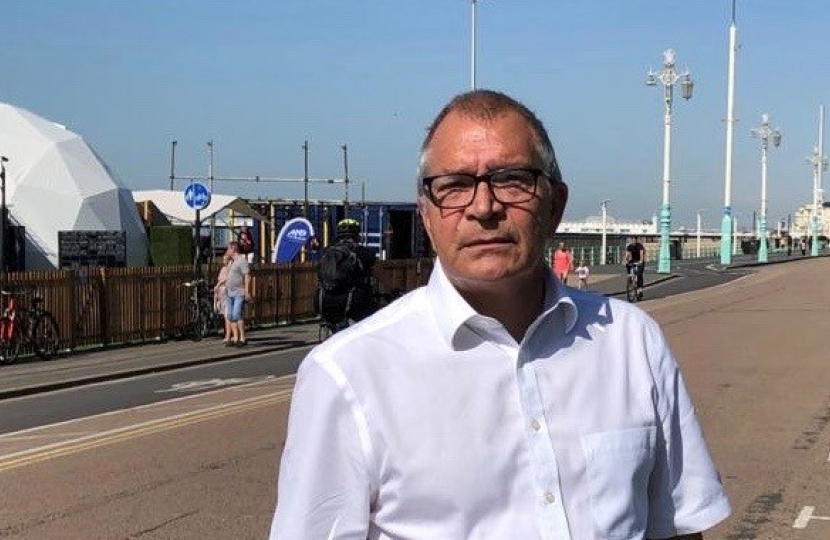
As Conservatives we believe in Government keeping to its core business and not competing with the private sector
Our core business as a council is our responsibility to our residents to deliver the services they rely on.
We must not expose our taxpayers to unnecessary risks as this impacts the City’s Council’s future ability to deliver the services that they rely on.
In recent weeks we have seen a worrying trend of decisions at the Council’s Policy & Resources Committee which is putting the taxpayers of this City and the services that they rely on at risk.
These decisions follow a pattern – the Council agreeing to borrow money on behalf of private entities. Through these decisions the risks that should be undertaken by private corporations are now being incurred by the taxpayers of the City.
A recent example shows the risks to taxpayers of this approach.
A pharmaceutical company in Moulsecoomb approached the council with a proposal for the council to buy its building from them and then lease it back to them.
The company proposed to use the the payment from the council to undertake a specialist refit of their premises.
This scheme – which was voted through by Labour and the Greens – is to be funded by the City taking out a large loan from the Public Works Loan Board and transferring the money to the corporation.
This uses the similar model as used for the i360 project: the council borrows a large sum of money on behalf of a business through the Public Works Loan Board; the Council pays back the loan plus interest with our Taxpayers’ money and seeks to see a repayment from these privately owned companies which is paid back over a long period of time.
The problem with this model is that it is the taxpayers of Brighton and Hove which take on the debt and the risks associated with it.
The i360 is a case in point. The i360 currently owes over £43 million – a sum guaranteed by the Council via the Public Works Loan Board and monies loaned from the LEP – but is unable to meet its twice-yearly loan repayment to the Council.
With the attraction continually failing to meet its repayments, Brighton & Hove City Council has been left with no choice but to agree to a series of further deferments extending to June 2021. The Council has little other choice given the extent of debt the council and taxpayers would be responsible for if the i360 collapsed.
The same risks apply with the Moulsecoomb decision.
While it is great that funds will be released to give the building a new specialist fit out, what happens if the entity fails, as often happens in the businessworld?
It will be the taxpayers of Brighton & Hove that will be left to pick up the pieces – just with the i360.
The Conservatives argued that the proposal was not fiscally responsible in the current circumstances the city faced.
With my fiscal approach I asked these questions: Are we really going to borrow money through the public loans board to lend to a private company? Why can they not finance this themselves? This company is predominantly owned by an American company – this provides a degree of risk.
I will never support borrowing money to lend to a private business. If it’s a private business it should be able to find its own money and it should be able to find its own investors.
Along with Conservative Finance Spokesperson Joe Miller I fundamentally disagreed with the officer’s characterisation of the deal as an asset purchase. In practice this isn’t an asset purchase it is instead an investment in a business similar to the i360.
What they are effectively doing is using us as a bank – because we can offer them lower interest rates than whatever their other option is.
We would be funding the development of a custom-build building that would be difficult to rent to another company. Conversions would be costly. There are other safer options for the council’s asset portfolio.
Last week the Policy and Resources Committee was at it again – this time Labour and the Greens deciding to link the Council with a house-building corporation which wants to build on the urban fringe in Brighton & Hove.
The development proposal was put forward because current house-building programmes on green land at Coldean and Portslade didn’t stack up economically so the Council decided to step in to make these developments more likely using our taxpayers money.
It is another attempt to build on land on the urban fringe which is already unpopular with voters.
The Council must look after the taxpayers of the City and not expose them to risk.



